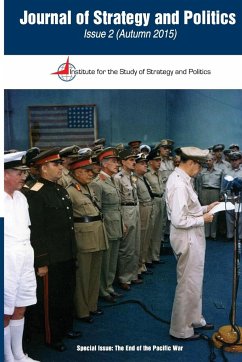Seventy years ago this summer, Japan surrendered after B-29s dropped two atomic bombs and the USSR declared war on Japan. These events, and the strategies and policies that produced them, have been hotly debated ever since. The end of the Pacific War did not merely end World War II, but determined the power structure in Asia for subsequent decades. It is imperative to understand 1945, whose legacies affect the peace and stability of the region to this day - for example, in the disputes over the Senkaku Islands, the division of Korea, and the status of Taiwan. This full day event will include presentations from Richard B. Frank, author of Downfall: The End of the Imperial Japanese Empire; prolific naval analyst Norman Friedman; D. M. Giangreco, author of Hell to Pay; David Glantz, author of The Soviet Strategic Offensive in Manchuria, 1945; John T. Kuehn, author of A Military History of Japan; and Richard C. Thornton, author of China: A Political History.
Hinweis: Dieser Artikel kann nur an eine deutsche Lieferadresse ausgeliefert werden.
Hinweis: Dieser Artikel kann nur an eine deutsche Lieferadresse ausgeliefert werden.








